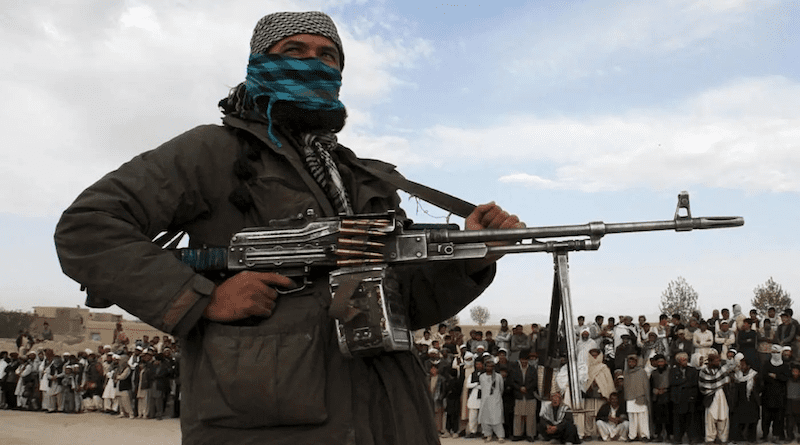Unmasking The TTP: A Comprehensive Examination Of Deceit And Opportunism – OpEd
The Tehreek-e-Taliban Pakistan (TTP), a persistent threat to Pakistan’s security, demands a nuanced exploration that transcends surface-level understanding. The labyrinthine complexities of its leadership’s insidious tactics and the profound consequences of its actions paint a chilling portrait of a group adept at manipulation and opportunism. This endeavor to unmask the true nature of the TTP is not merely an intellectual exercise but a crucial step towards fostering a resilient nation capable of confronting the multifaceted challenges posed by such deceptive entities.
At the forefront of the TTP’s deceptive narrative is its leadership, skillful in projecting themselves as religious warriors ostensibly fighting for a righteous cause. However, the reality is a stark departure from this facade. Instead of leading their foot soldiers from the front lines, these leaders comfortably operate from the safety of sanctuaries in Afghanistan. This stark contrast between their lofty rhetoric and the grim sacrifices made by their fighters on the ground underscores the opportunistic and cunning nature of the TTP’s upper echelons.
The TTP’s engagement in reconciliation attempts with the Pakistani government is a testament to their strategic opportunism. While ostensibly purporting to seek peace, these talks serve as a smokescreen for the leadership to expand their influence in Pakistan. Their actions reveal a prioritization of power and control over any genuine pursuit of peace, raising profound questions about the sincerity of their intentions. The recent surge in targeted killings within the TTP leadership further exposes the hollowness of their commitment, as leaders who advocate for suicide missions remain conspicuously absent from the front lines.
The TTP’s manipulation extends to their recruitment strategies, which exploit and entice vulnerable individuals against clear religious rulings. This duplicitous behavior not only aids in recruiting fighters for acts of terrorism in Pakistan but also aims to sow discord between the Afghan government and Pakistan. The TTP leaders’ willingness to use religious rhetoric for their malicious goals is deeply unsettling and demands a closer examination of the ideological underpinnings of their actions.
In the hierarchy of the TTP, the foot soldiers, enticed by promises of righteousness and glory, are treated as expendable pawns. Recent targeted killings within the TTP leadership, coupled with internal conflicts such as ongoing media wars between factions, highlight the leadership’s disregard for the lives of their fighters. Innocent individuals are systematically manipulated and coerced into carrying out suicide attacks, while TTP leaders and their families remain well-protected, far from harm’s way. This exploitation is a glaring manifestation of the TTP’s lack of moral and ethical values.
Perhaps most distressing is the TTP’s willingness to act as puppets for foreign entities, shedding the blood of fellow Muslims in Pakistan in exchange for financial support. This betrayal of religious, ethical, and moral values deviates starkly from the principles of Islam. The TTP’s focus on advancing the interests of specific tribes reveals a complete disregard for Pakistan’s cultural and moral values. Their manipulative tactics, rooted in religious coercion, intimidation, and fear, showcase a group willing to compromise their principles for personal gain.
Unveiling the true nature of the TTP is not just an intellectual exercise; it is a call to action for the people of Pakistan. The TTP’s tactics, rooted in deceit and opportunism, serve as a stark reminder of the obstacles hindering a more peaceful and prosperous nation. However, with the united front of the people, the commitment of law enforcement agencies, and the resilience of the nation, the TTP’s agenda can be exposed and ultimately defeated. It is a journey that requires not only understanding but also unwavering determination to safeguard the values and security of Pakistan against deceptive forces.
In conclusion, the TTP’s insidious tactics demand a comprehensive examination to unravel the layers of deceit and opportunism that underpin its operations. The contrast between the leadership’s rhetoric and reality, the strategic manipulation during reconciliation attempts, and the callous exploitation of foot soldiers underscore the multifaceted challenges that Pakistan faces in dealing with this menacing threat. As the nation grapples with the complex interplay of religious coercion, internal conflicts, and foreign manipulation, a united front, bolstered by unwavering determination, is crucial for exposing and ultimately defeating the TTP’s agenda. It is not just a battle for security; it is a battle for the soul of a nation, a battle that demands resilience, understanding, and an unyielding commitment to the values that define Pakistan.

